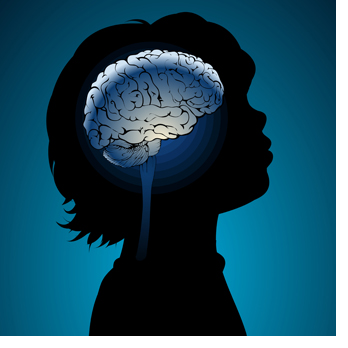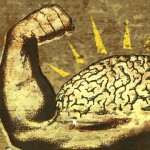 It’s October – which means Back to School time is in full swing, so what better time to talk about children, learning, and behavior. If your child is having difficulty concentrating at school, often seems lethargic, or is constantly frustrated with trying to learn, the following tips can help you address the cause and offer natural solutions.
It’s October – which means Back to School time is in full swing, so what better time to talk about children, learning, and behavior. If your child is having difficulty concentrating at school, often seems lethargic, or is constantly frustrated with trying to learn, the following tips can help you address the cause and offer natural solutions.
Food for the Brain
When it comes to food preferences and snack time, many parents will give in to a whining, screaming, or bargaining child. Now, of course this is acceptable in moderation (and sometimes a necessity for one’s sanity), it’s when this becomes the norm and sugary processed foods take the lead over natural foods we begin to see a problem.
The brain is a very demanding organ, requiring a lot of energy to function well. Food choices have a great deal to do with alertness, mental agility, and ability to focus. Food allergies or intolerances can cause symptoms such as attention and learning difficulties.
According to Dr. Michael Lyon, author of the book, Is Your Child’s Brain Starving? Food Not Drugs For Life and Learning , there are common factors among children who have been labeled with learning difficulties or disorders. “Most of these kids have food allergies or intolerances. Nutritional deficiencies or imbalances are common, especially low levels of important essential fatty acids DHA and EPA,” explains Dr. Lyon.
Supplements for Focus
If you can’t change a child’s food habits, you can certainly add supplements to help prevent deficiencies. Omega-3 and omega-6 fatty acids are brain-critical nutrients. Studies show that supplementation with fish oils rich in omega-3s (especially compounds DHA and EPA) can improve mood, attention, and alertness among children with learning or attention disorders.
Lack of certain nutrients, consumption of trans fats, and genetic factors can inhibit the body’s ability to convert and use omega-3 and -6 fatty acids. Fish oil blends can provide omega-3 and -6 fatty acids that the body can use without conversion. Essential fatty acids supply important learning support for teens and children with attention and behavior challenges so that parents and their kids can enjoy a better quality of life.
The Chiropractic Approach
As you know, the spine and skull protect our child’s precious brain and nervous system (or their “communication highway” for thinking, feeling, and behaving). However, during childhood –the time when we the most falls and accidents occur– connections are still being formed. Researchers have found that birth to two years of age, is a critical period of brain development, and that any disruption from injury can have long-lasting or even permanent effects on the structure and function of the brain.
The spine and skull generally take the brunt of falls in childhood. It has been estimated that in their first year of life, 48% of children will fall and land on their head. When a child’s body is suddenly jarred in an accident, muscles surrounding the spine protectively contract, including muscles that directly attach to the delicate nerve coverings. This causes the spine to tension and misalign. With a subluxated spine, our child’s communication highway is no longer working at 100%, altering the way they are able to think, feel and behave.
Although not a treatment for neurological disorders, chiropractic care has given many children suffering from neurological disorders new hope. Chiropractors, parents and school officials have reported on the effectiveness of chiropractic care for children with many kinds of neurological conditions including learning disorders, hyperactivity, inability to concentrate and behavior problems.
References:
http://www.alive.com/8422a18a2.php
http://welladjustedbabies.com/whats-the-impact-of-childhood-falls/







